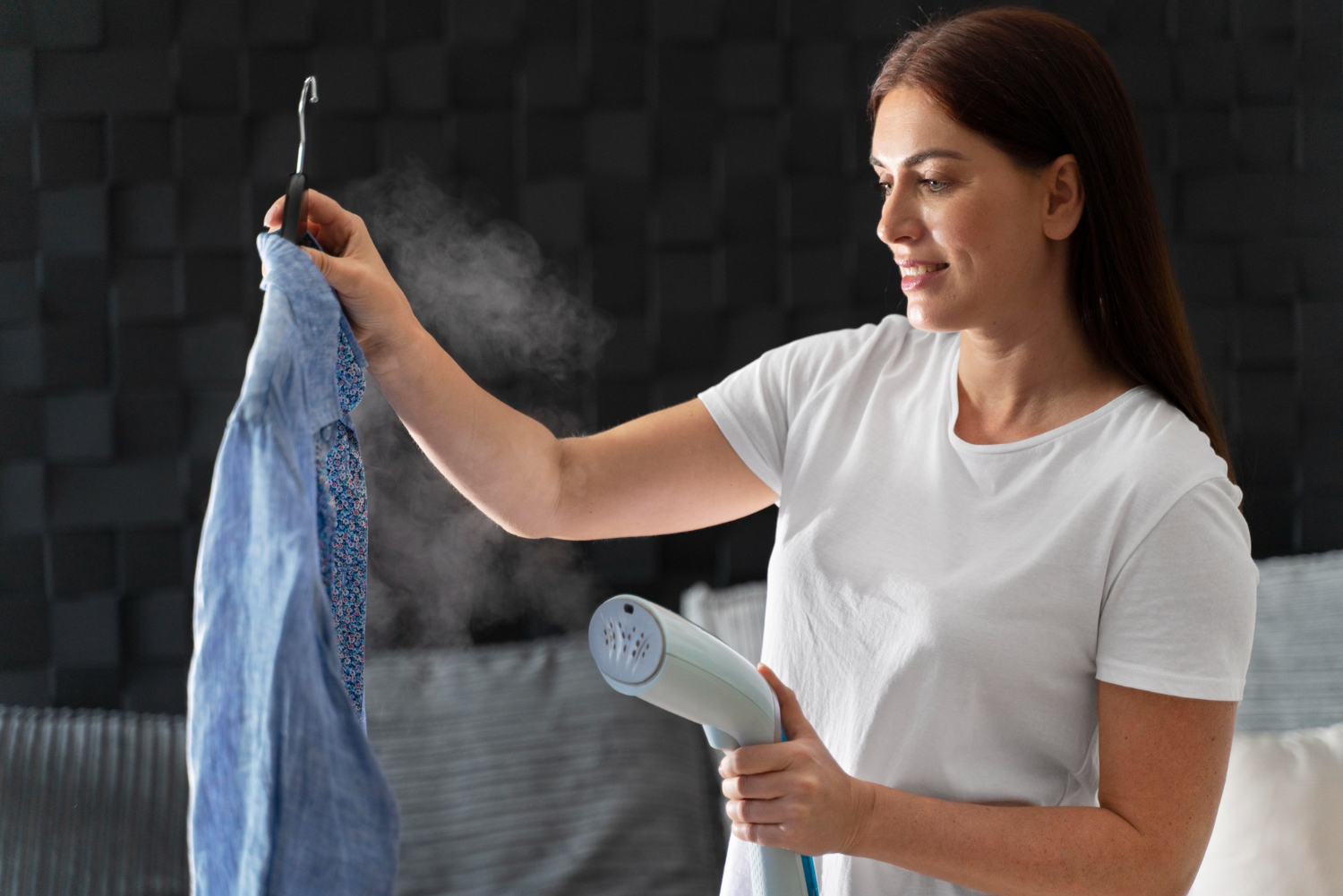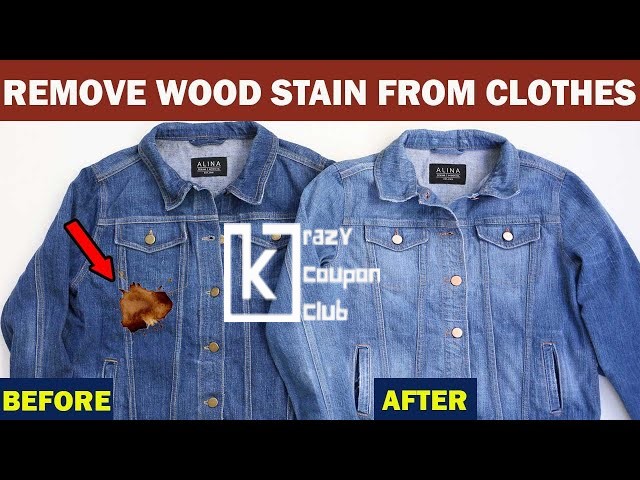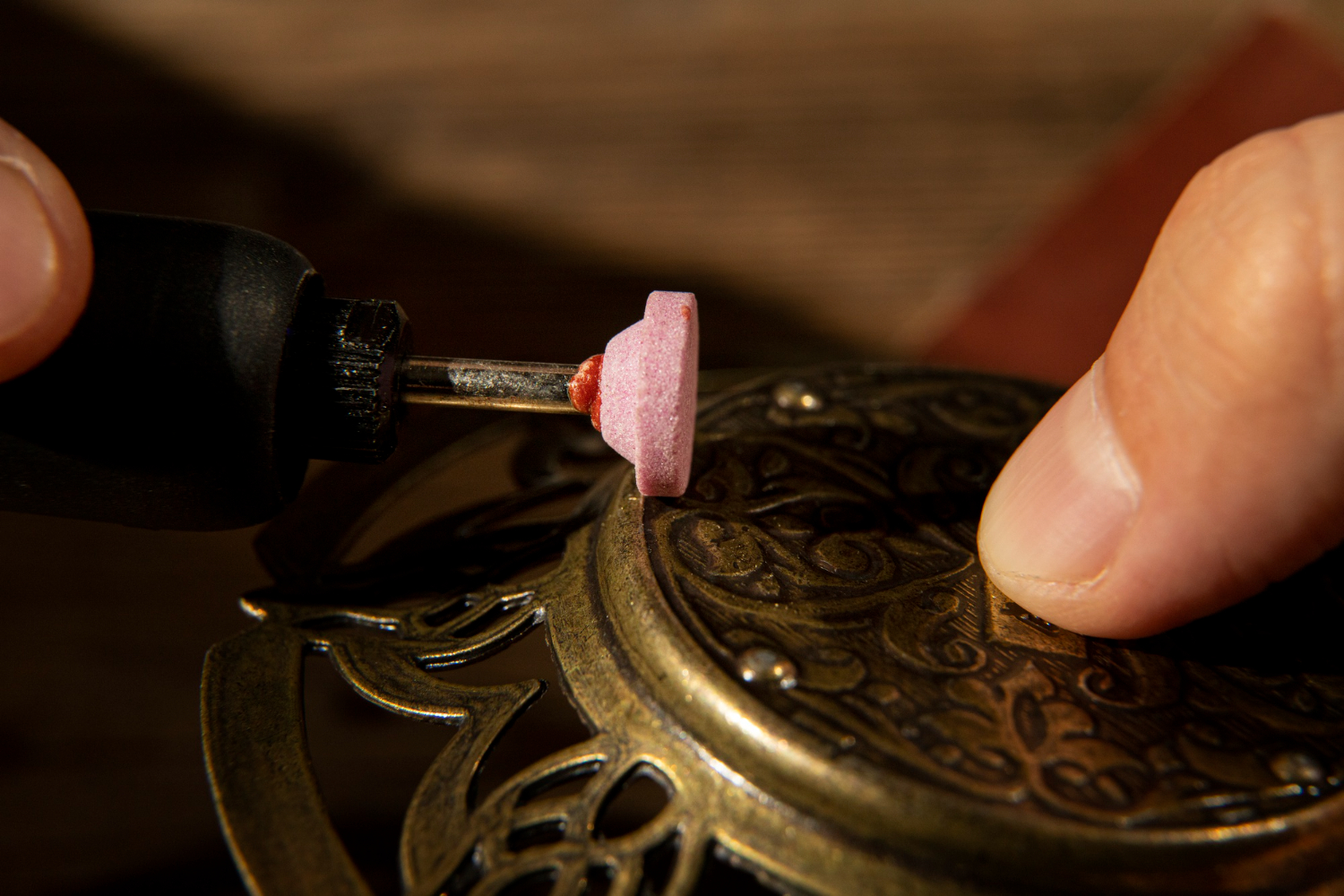Introduction
How to remove rust stains from clothing? Rust stains on clothing can be a frustrating sight, but fear not! In this comprehensive guide, we will explore effective methods to remove those stubborn rust stains and salvage your favorite garments. Whether it’s an accidental encounter with a rusty nail, a washer mishap, or any other rust-related incident, we’ve got you covered.
Understanding Rust Stains
Before we delve into the various techniques for removing rust stains, it’s vital to grasp what causes these cussed blemishes. Rust stains occur when iron particles come upon moisture and go through a chemical reaction with material fibers. This reaction outcomes in the formation of reddish-brown marks which could seem nearly impossible to remove.
In essence, rust stains are the unwelcome consequence of this chemical bonding between iron and your clothing. Understanding this fundamental process equips you with the knowledge needed to effectively combat rust stains and ensure your garments remain pristine.
What Are Rust Stains?
How to remove rust stains from clothing: Rust stains are reddish-brown marks that appear on fabric when iron particles come into contact with moisture. They can be particularly challenging to remove because they chemically bond with the fabric fibers, making them a common laundry dilemma.
Gathering Supplies – How to Remove Rust Stains from Clothing
To tackle rust stains effectively, you’ll need some supplies. Here’s a detailed list of what you’ll require:
Lemon Juice: Lemon juice is a natural acid that works wonders in breaking down rust stains. It’s gentle on fabrics and safe to use on most clothing items.
White Vinegar: White vinegar is any other household item that can help dissolve rust stains. It is without difficulty available and budget-pleasant.
Baking Soda: Baking soda is a versatile ingredient that can aid in rust removal. It works well in combination with other substances to tackle tough stains.
Salt: Salt acts as an abrasive agent when combined with lemon juice or vinegar, supporting to lift of rust particles from the fabric.
Toothbrush: A soft-bristle toothbrush is an excellent tool for gently scrubbing the rust stain without causing damage to the fabric.
Rust Remover: For stubborn rust stains that may not budge with household objects, keep in mind making an investment in a business rust remover. Those merchandise are specially designed for rust elimination and may be located at maximum hardware stores.
Laundry Detergent: Your regular laundry detergent will be used to wash the garment after applying the rust removal methods.
Rubber Gloves: To protect your hands from chemicals and ensure safety during the rust removal process, wear rubber gloves.
Bucket: A bucket will be handy for mixing solutions and soaking the stained clothing.
Old Toothpaste: Surprisingly, toothpaste can work as a makeshift rust remover due to its abrasive texture.
Methods for Removing Rust Stains
How to remove rust stains from clothing: There are several effective methods you can try to remove rust stains from clothing. We’ll discuss each one in detail to ensure you have the right approach for your specific situation.
Lemon Juice and Salt
This natural method works wonders for light rust stains.
Steps:
- Squeeze fresh lemon juice onto the rust stain.
- Sprinkle a generous amount of salt over the lemon juice.
- Place the garment in direct sunlight for a few hours. Sunlight helps activate the lemon juice and salt mixture.
- After a few hours, gently scrub the stained area with a toothbrush.
- Launder the garment as usual.
Tips and Tricks:
- For better results, use a real lemon as fresh juice is more effective.
- The sunlight is crucial as it enhances the rust removal process.
White Vinegar and Baking Soda
White vinegar and baking soda are effective for moderate rust stains.
Steps:
- Mix equal parts white vinegar and water.
- Pour the vinegar mixture directly onto the rust stain.
- Sprinkle a small amount of baking soda over the vinegar-soaked area.
- Allow the mixture to sit for approximately 30 minutes. During this time, you may notice some fizzing, which is normal.
- After 30 minutes, use a toothbrush to gently scrub the stained area.
- Rinse the fabric thoroughly with water and launder as usual.
Tips and Tricks:
- The fizzing action helps to loosen rust particles, so don’t be alarmed when you see it.
- For larger stains, you can scale up the measurements accordingly.
Commercial Rust Remover
For stubborn rust stains that don’t respond to homemade remedies, consider using a commercial rust remover.
Steps:
- Read and follow the manufacturer’s instructions on the product carefully.
- Apply the rust remover directly to the stain, following the recommended guidelines.
- Allow the rust remover to sit on the stain for the specified time.
- After the recommended time has passed, wash the garment following the care instructions provided on the clothing label.
Tips and Tricks:
- Always test a small, inconspicuous area of the fabric with the commercial rust remover to ensure it won’t damage the material.
Pros and Cons
Pros of DIY Methods:
- Cost-effective as they use common household items.
- Environmentally friendly and safe for most fabrics.
- Suitable for small to moderate rust stains.
Cons of DIY Methods:
- May not work on severe or old rust stains.
- Require more time and effort compared to commercial rust removers.
Pros of Commercial Rust Removers:
- Specifically formulated to tackle rust stains effectively.
- Suitable for severe or persistent rust stains.
- Convenient and easy to use.
Cons of Commercial Rust Removers:
- More expensive than DIY methods.
- May contain harsh chemicals, so follow safety precautions.
Prevention
Now that you’ve successfully removed rust stains, it’s essential to take preventive measures to ensure they don’t return.
Store Tools and Hardware Properly: One common source of rust stains is contact with rusty gear or hardware. To save you this, make sure to keep these gadgets in a dry region or use rust-resistant coatings.
Regularly Inspect Appliances: Appliances like washing machines and dishwashers can develop rust over time, especially if they’re exposed to moisture. Regularly inspect these appliances for any signs of rust or wear and tear. Address any issues promptly to prevent rust from transferring to your clothing.
Address Water Issues: In case your faucet water has a high iron content, it may contribute to rust stains in your garb. Recall installing a water softener to reduce iron stages in your water supply. This could significantly reduce the prevalence of rust-related issues to your laundry.
Conclusion
In summary, conquering rust stains on your clothing involves understanding, action, and prevention. We’ve explored various removal methods, from natural options like lemon juice and vinegar to commercial rust removers. Each method has its pros and cons, so choose wisely.
To prevent future rust stains, store tools properly, inspect appliances regularly, and address water issues. Act promptly to remove rust stains, as older stains are tougher to tackle.
By following this guide, you’ll be well-prepared to deal with rust stains effectively and preserve your clothing.
Frequently Asked Questions
Q: Can I use these methods on colored clothing?
A: Sure, those strategies are usually safe for colored garb. But, it’s a great concept to identify in an not easily seen region first.
Q: Are there any fabrics that these methods won’t work on?
A: These techniques are safe for maximum fabric, but keep away from using them on sensitive substances like silk.
Q: What if the rust stain is on a delicate item?
A: For delicate gadgets, don’t forget to consult an expert cleaner to keep away from harm.
Q: Can I use lemon juice from a bottle instead of fresh lemons?
A: Clean lemon juice is more powerful, however bottled lemon juice can paint in a pinch.
Q: Is it possible to prevent rust stains on outdoor furniture?
A: To save you rust on outside fixtures, remember the usage of rust-resistant coatings or covers when not in use.
Peruse an Extended Collection of Articles: How to Remove Dry Erase Marker from Clothes



